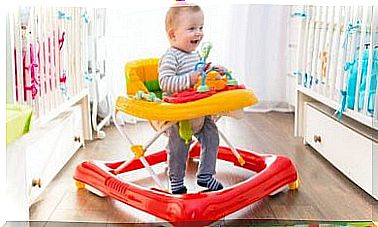Communicate With Your Teenager With Five Magic Words

Communicating with your teenager can be a little tricky. When talking to him, asking him what he plans to do rather than telling him what you think he should do will help open up a whole new world of communication and respect. Communicating with teenagers can be difficult, but these five magic words – “What do you want to do?” – can open many doors.
Communicate with your teenager with five magic words: “What do you want to do?”
These words together can mend the relationship forever. Teenagers are old enough to know what to do and need your help in figuring out how to handle situations. But they also want to be in control and want to be able to choose between different alternatives.
The five magic words – “What do you want to do?” – convey respect, because with them you pass on the responsibility to your child, helping him to develop good planning skills. These are five very powerful words, far more than you can imagine. When you start using them, everything will change between you, for the better.
You may be reluctant at first, thinking that your child is disorganized and that you always need to remind him of his responsibilities. However, it is a good idea for him to learn from his mistakes.

Teenagers generally want to do things when they feel like it, not when you want them to. No need to argue. They simply must know that there are deadlines that must be met and that if they are not, there will be consequences.
In addition to using the five magic words, it’s a good idea to stick with other communication strategies. This way, you can ensure that the relationship with your children is fluid and, thus, you can convey your messages more effectively.
Keep an open conversation along with the five magic words
If you put your child on the defensive, he will hide the truth or lie because he doesn’t want to let you down, but he will also want to do what he thinks is best in every circumstance. It is important to maintain mutual respect so that the lines of communication remain open at all times. If you want to stay calm in a conversation, follow these tips:
First the empathy, then the consequences
Looking at the situation from your child’s point of view will help guide your child to make better decisions in the future. The next time your child comes home with an unacceptable grade, try saying something like, “Give me a hug”, “Can I do something to help you?”; “What can we do together to improve results?”
Allow yourself a break to communicate with your teenager
You don’t need to respond right away when you’re angry or upset. Allow yourself time to calm down. In the heat of the moment, it’s good to say, “You didn’t set the table, but you knew that was your responsibility. We’ll take care of it after I have time to calm down.”
Don’t yell and use the five magic words to communicate with your teenager
React first with empathy and then present the consequence. In some circumstances of conflict, the natural response is to get angry, but anger only expresses your feelings, letting them spill like boiling milk. In fact, anger communicates nothing. You should step back and look from your child’s point of view. Say the five magic words.

do not scold
The reprimand is born from the desire that your child doesn’t make mistakes. However, childhood and adolescence are about learning through trial and error. Leaving a messy room, not studying for a test, and forgetting to do chores are mistakes that don’t put their children’s lives at risk and that they can make and then face the consequences.
Annoyance stresses both of you and doesn’t teach you the value of taking your responsibilities more seriously. A reminder is enough. If you ever scold your kids about something, they will expect you to always continue to scold them. Remind them of things only once, and if they don’t, they must face the consequences.
Don’t be a problem solver
Your job as a mother (or father) is to teach your child to make good decisions and to think independently. You don’t need to have all the answers and you don’t need good answers either. You just need to start a conversation on dry land. For example, you can say something like, “Let me think about it and then we’ll see what we can do together.” The most important thing is that your children use their reason.
When you’re about to have a disagreement with your teenager, allow yourself time to decide how you’re going to react before responding. The answer is often critical. Find out how you would like to be treated and act the same way. Also, use the five magic words: “What do you want to do” or, also, “How do you want to do it?”.









